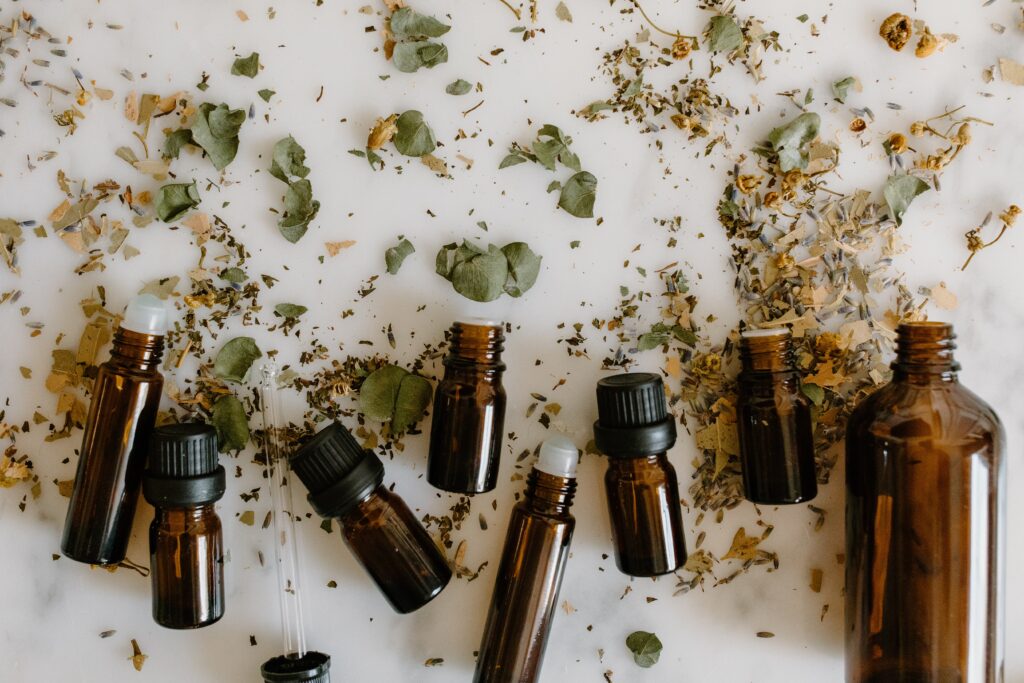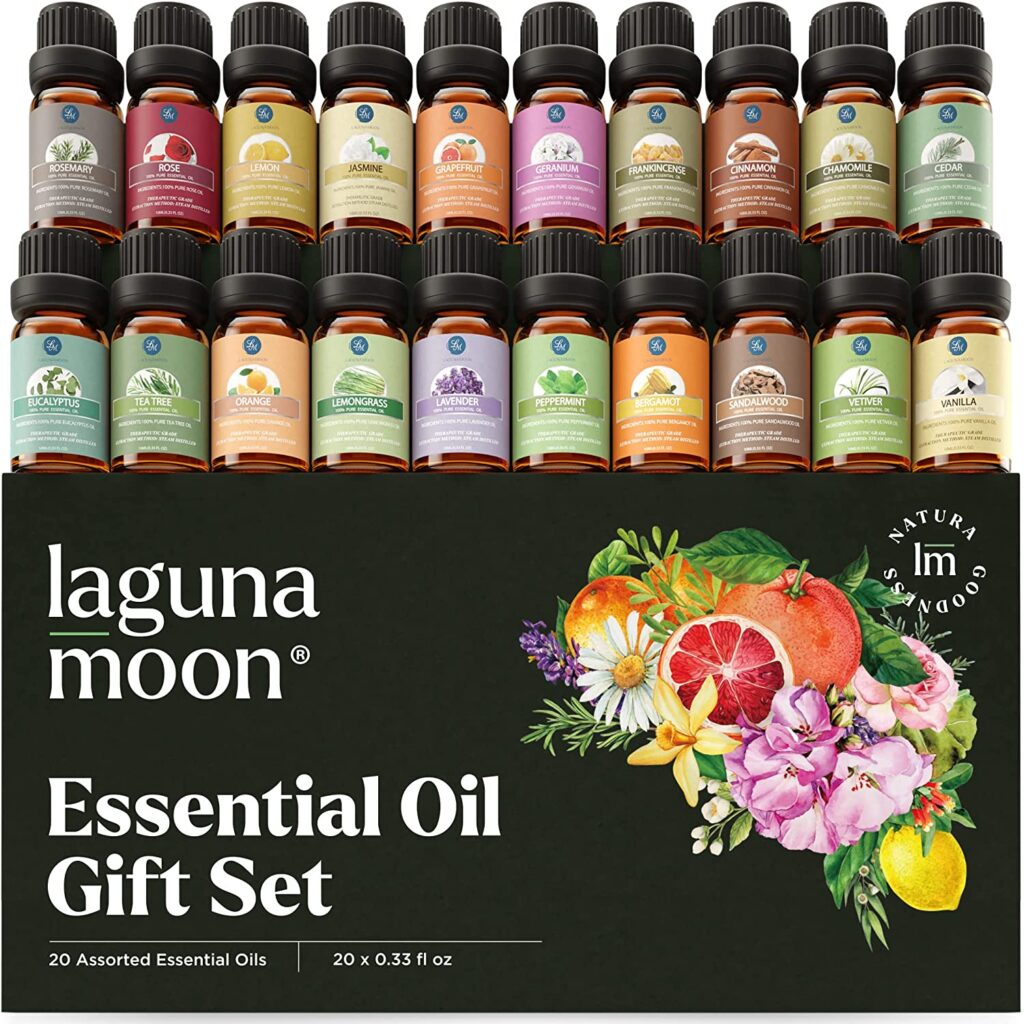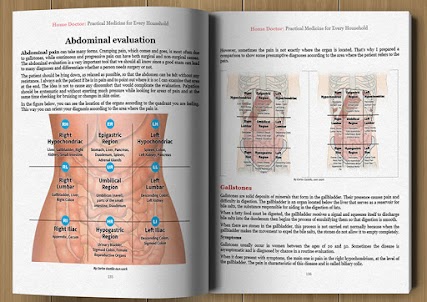Headaches are a very common condition that anyone from all ages can and will most likely experience occasionally throughout their lives. In fact, around 40% of people in the world have tension-type headaches and around 10% have migraines. Thankfully, not all types of headaches require medication and can be treated at home. Headaches can also trigger other things like dizziness and nausea. Listed below are some natural remedies that are proven to be effective against these symptoms.
Essential Oils
Note: Some of the links here are affiliate links. There’s NO additional cost for you, but it does help our team to earn some coffee money to help write more health tips for you.

Studies show that aromatherapy is an effective way to reduce pain by absorbing essential oils through topical application or inhalation. When feeling queasy or dealing with a headache, you can massage essential oils on the head, temples, neck and chest as well as breathe in its scent to help relieve symptoms.
How To Use Essential Oils
There are many ways to use essential oils, but it is important to remember that they are highly concentrated and a little goes a long way. Diluting them not only makes it less likely to be irritant, it will also help your body absorb the oils better.
* Diffuser: Add 1 to 10 drops per diffusion period depending on the area of the room or follow your diffuser’s instructions.
* Massage: Add 1 drop of essential oil per 1 teaspoon of carrier oil and shake well before using.
* Bath: Since essential oils are not water soluble, mix 3 to 15 drops with a dispersant such as a few tablespoons of full cream milk or some bath salts.
* Steam Inhalation: Add 1 to 2 drops to a bowl of steaming water. Put a towel over your head and the bowl and breathe deeply, keeping your eyes closed the entire time. (Caution: This method is not recommended for children aged 6 and below.)

Laguna Moon Essential Oil Gift Set
From calming lavender and soothing chamomile to refreshing eucalyptus, this set of 20 essential oils has something for everyone.
Peppermint Oil
Peppermint oil has been found to be a highly effective treatment for tension-type headaches which are the most common type of headache. Its efficacy is comparable to paracetamol and a study shows that it is even effective in treating acute migraine attacks. The menthol found in peppermint has analgesic effects and produces a cooling and numbing sensation. This also helps with vertigo which includes nausea, headaches, and dizziness.
Lavender Oil
Lavender is known for its calming effects and is effective in managing migraines. The scent of lavender oil is very soothing and helps improve sleep quality which is beneficial for people whose headaches are triggered by sleep-deprivation.
Eucalyptus Oil
Eucalyptus oil helps relieve sinus headaches as they clear nasal mucus when inhaled. It also has analgesic properties which helps relieve pain. The best way to use it is through steam inhalation.
Ginger
Ginger has long been cultivated to be used as a spice or herbal medicine. It is best known to treat vomiting and nausea. A 2013 study also found that the effectiveness of ginger powder was comparable to the drug Sumatriptan in treating migraines and also caused less side effects. Ginger powder can be taken as a supplement, but another way to take ginger is to make it into a tea by boiling a thinly sliced piece of ginger in 3 cups of water for 10 minutes. Strain and add honey and lemon juice to taste.
Clove
Clove is a traditional spice often used as a food preservative, but it also has medicinal properties and even acts as a natural pain reliever because its main active compound, eugenol, is a natural anesthetic. For clove tea, you will need to boil 1 to 4 whole cloves in 1 cup of water for 3 to 5 minutes. Strain and add honey to taste.
Water
Some headaches are triggered by dehydration and this happens when your body doesn’t get enough fluids. In the US, most people don’t reach the recommended daily fluid intake of 2.7 liters for women and 3.7 liters for men. Even mild dehydration can cause a headache along with other symptoms such as fatigue, confusion, difficulty concentrating, and dizziness. Dehydration causes headaches because it makes your brain contract and apply pressure on nerves. Drinking water and other fluids plumps the brain back up to its original size and alleviates the pain.
Acupressure
Acupressure is pretty much like acupuncture, but without the needles. Reflexology has been in practice for thousands of years in traditional Chinese medicine, though its earliest discovery was in hieroglyphic murals in the pyramid in Saggara, Egypt, suggesting it was part of their culture from 2330 BC. It is used to improve health, ease pain, and restore balance in the body by using pressure points. A 2011 review on 43 studies found that acupressure was effective in treating various symptoms including nausea and vomiting due to pregnancy, chemotherapy, and post surgery, as well as fatigue and insomnia. A 2002 study also found that muscle-specific massage therapy significantly reduced the frequency and duration of chronic headaches.
Pericardium 6 (PC6) for Vomiting and Nausea
1. Position your arm with your palm facing up and place the first three fingers of your other hand across your wrist, at the base of your palm.
2. Position your thumb just below the fingers, lifting them away while keeping your thumb in place.
3. Gently press. You should feel two large tendons. This spot between the tendons is the pressure point.
4. Apply pressure and move your thumb in a circular motion, changing direction from time to time. Do this for 2 to 3 minutes.
Repeat with the other arm.
Large Intestine 4 (LI4) for Headaches
1. With your other hand, pinch the web between your thumb and index finger firmly, but not painfully, for 10 seconds.
2. Use your thumb to rub the area in a small circular motion for 10 seconds.
3. Repeat the process rubbing in the opposite direction.
4. Do the same on the other hand.
The Bottom Line
Natural remedies are effective in soothing headaches, nausea, and dizziness. It is even effective enough to soothe migraines which aren’t typical headaches and can greatly affect your lifestyle. As always, be cautious about how these ingredients can react to medication you may be taking. If you find your symptoms do not go away with home remedies and if you experience them frequently and severely, it would be best to consult a doctor to check for possible underlying issues.
Your Must-Have Guide to Ailments, Diagnosis & Unexpectedly Effective Home Remedies
Authored by 2 real doctors and a survivalist prepper, The Home Doctor, will enable you to (1) find a common “antibiotics” plant, (2) diagnose the type of abdominal pain you have, and (3) do so much more.







